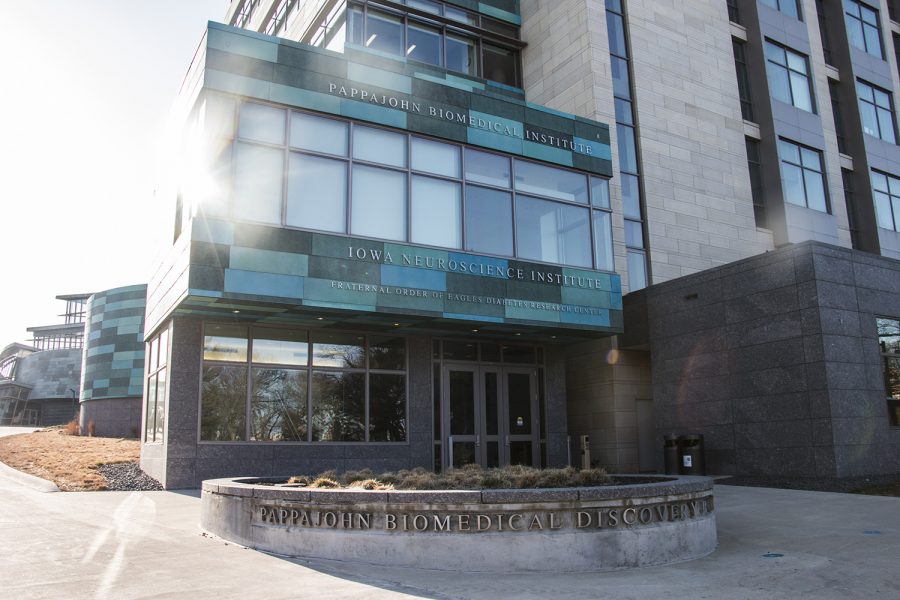Regents approve extended admissions suspension in five Biomedical Sciences legacy programs
The state Board of Regents have approved a University of Iowa request to extend an admissions suspension for five legacy programs under the Biomedical Sciences umbrella, and the individual reopening of three others.
The Pappajohn Biomedical Discovery Building is seen on April 17, 2018.
February 5, 2020
At its meeting in Urbandale on Wednesday, the state Board of Regents approved a University of Iowa request to extend the admissions suspension of five Biomedical Sciences legacy programs, while reopening the admissions door to three others.
According to regents’ documents, in 2016 the board approved a Biomedical Science graduate degree program that coalesced eight independent programs aiming to use their shared structure to increase the quality of applicants, as well as competitiveness in grant funding and faculty.
Potential benefits at the time included interdisciplinary, biomedical research, UI Provost Montserrat Fuentes said at Wednesday’s meeting.
Each participating program, from within the Graduate College and the College of Medicine, suspended its admissions upon entering the Biomedical Science consortium, regent documents read.
Three years later, the UI will extend the admissions suspensions of five legacy PhD programs for two more years: Anatomy and Cell Biology, Free Radical and Radiation Biology, Molecular and Cellular Biology, and Molecular Physiology and Biophysics and Pharmacology.
“Simply put, three years was not … enough time to identify which structure optimizes their program opportunities in attracting high-quality students and funding,” the documents read.
RELATED: University of Iowa medicine school looks to integrate creative writing through new contest
The regents approved Wednesday the reopening of admissions to the independent programs for a PhD in Microbiology, PhD in Immunology, and a PhD in Biochemistry.
Each of the three returning programs identified their competitive needs for attracting high-quality students, funding, and faculty, and determined that they are better served independent of the Biomedical Science consortium, according to regent documents.
The remaining legacy programs understand the remaining importance of recruitment and other factors within the consortium, Fuentes said.
“They see the benefits of … integration, as well as opportunities to pursue interdisciplinary funding,” Fuentes said.






